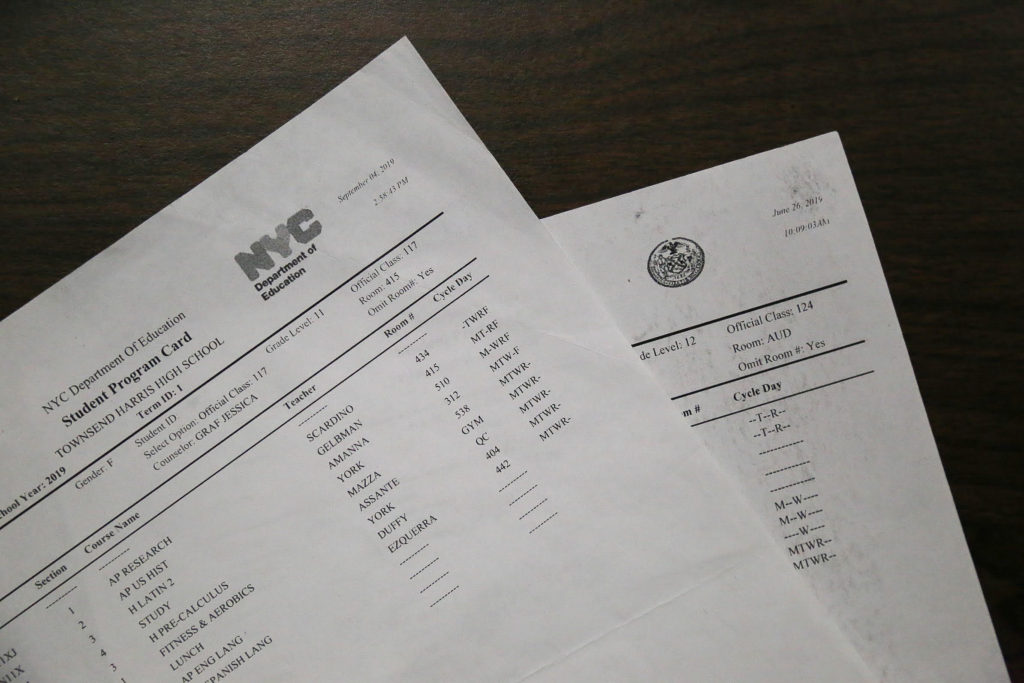
By Bindu Koyi and Victoria Oei, News Editor and Managing Editor
Concerned students flocking to the guidance office at the start of the school year to change their schedules is an annual tradition. However, this year the school year began with numerous students having holes in their programs due to lacking necessary classes, many of which were STEM or language courses. This irregularity led to increased concerns by students and ultimately to the creation of new sections of classes to meet these needs.
Junior Kanny Ho Fang said, “Many students [have been] left without classes that they may need and some are stuck with classes which are ultimately not in their best interests.” This dissatisfaction was a driving factor in the requests for program changes.
The administration tried to overcome this issue by adding classes. For instance, Ms.York revealed, “In the first week of school, we were able to add an additional calculus class knowing that I had enough students that were interested in it.” Other courses were later added to meet demand.
One senior, who did not have a science class junior year, also felt a lack of options was a problem: “I needed another science because having only three years of science looks really bad for college apps; I was told that every class was filled up, but I felt that I should have [had] more priority over sophomores and juniors with a physics and AP psychology elective.”
Ms. York said, “The maximum number of students you can put in a class is thirty four …[and] we have a really large incoming freshman class. We also have a large sophomore class.” In order to accommodate the needs of freshmen and sophomores, extra sections of core classes had to be added, resulting in a lack of electives and options for upperclassmen.
Junior Elaine Tsui said, “Many people went directly to their guidance counselor even though they weren’t supposed to. Either way they got their schedules changed multiple times before I got it changed once.” Many students feel that the system for program changes is unfair to some students because students can use other means aside from the appropriate form to make requests.
Despite the large amount of unsatisfied students, Assistant Principal Ellen Fee said, “In my seventeen years at Townsend Harris, I think that [this year] was among the top five in smoothest” concerning programming. However, she added, “Every year, there’s a lot of chaos in the last week of August and the first week of September…[and there are] at least 300 students who want program changes.”
Another issue to consider, according to Assistant Principal of Guidance Veronica York, is that “one student shouldn’t have five AP courses while another [student] has none.” All of these issues have to be taken into consideration, especially since program adjustments are done by hand after the initial program is produced by a computer-based algorithm.
In terms of priority, students have questioned if senior priority was taken into account in the creation of programs. Ms. Fee explained that senior schedules are created based on the Queens College classes that they are placed in. Once their QC classes have been established, the guidance office goes through each senior program by hand to make sure that there are no overlaps in class times. Seniors who did not receive specific classes they requested could have been affected by these accommodations as well as other factors.
To students who are particularly dissatisfied with their program next year, Ms. York said, “Come have a conversation with me or their guidance counselor. Let’s find out what’s really going on, why are you really upset? What about this program and this group of courses in this particular order is making you upset or anxious? Then we’ll try and sit there and address and figure out what we can do.”




























